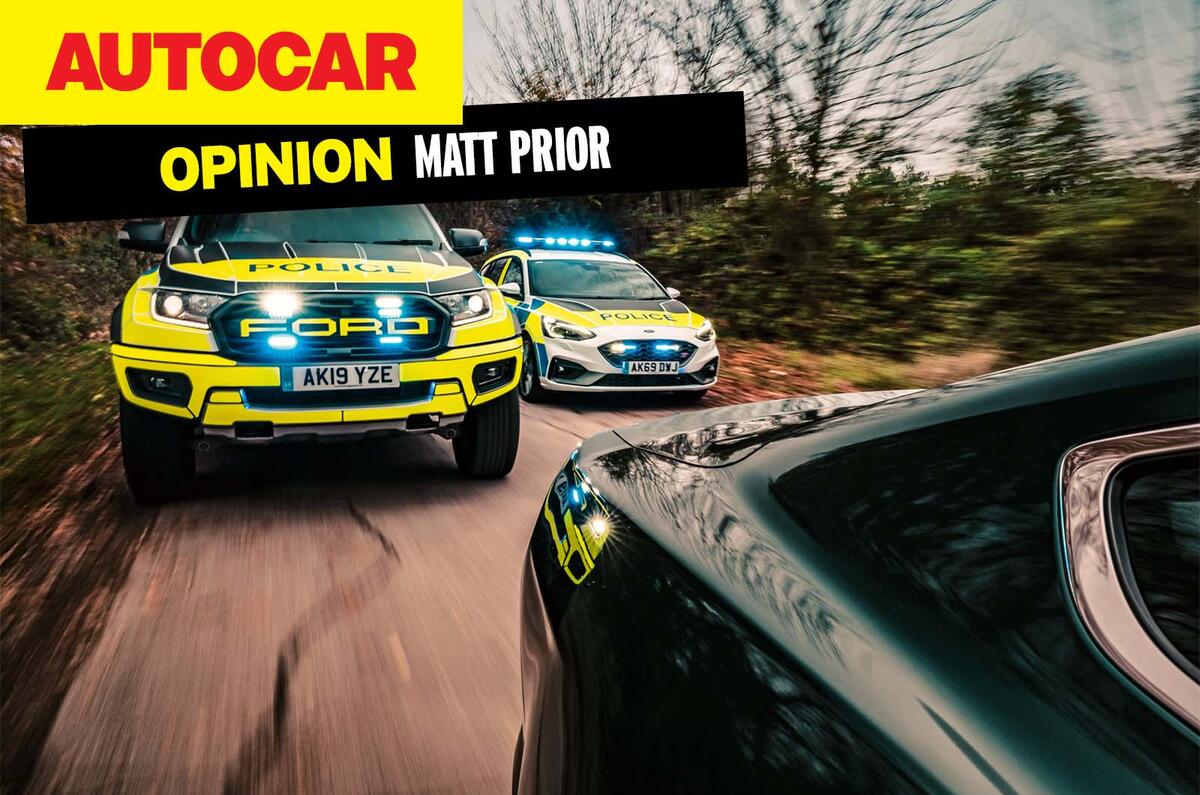I don’t use a dashcam, despite how useful they can be to prove one’s innocence following a collision.
That’s partly because of the faff of setting one up every time I test a different car, but mostly because of who I might become.
When dashcams first appeared, I didn’t anticipate how they could turn a number of us into – how to put it? – such antagonistic snitches. A bunch of lowdown grasses. Squealers. People thriving on catching other road users making errors and then taking delight in fessing them up online. Could I be that kind of person? Perhaps. Best not find out, I think.
So popular, if that’s the word, is the pastime that it’s encouraged by police services, who appreciate us doing the legwork. They even later release YouTube montages.
In the past week, I’ve also seen videos of a motorcycle rider and a driver both prosecuted for bad behaviour. And in both cases bang to rights too: one careless, one incredibly aggressive.
Both were encouraged into it by the poor behaviour of those around them, either by failing to enter a dual carriageway safely, or by hanging around in the wrong lane until they were undertaken, but that doesn’t excuse the actions. These were rightful, well-deserved prosecutions.
But I’m not sure they’re the only guilty parties in those incidents. There are thousands of videos online uploaded by people who would rather be involved in than avoid an incident they can plainly see coming, just so they can gleefully say they were right when it happens, like a child who taunts a sibling into finally landing the thump that gets them sent to their room. “Ha! Look what I made you do!”
As a motorcyclist and cyclist, I’d rather stay wronged but upright. “I was right” makes for a gloomy epitaph.
It suits police chiefs to appeal for this footage and to use it for prosecutions, though, because it ups their rate of motoring convictions, which, aside from speed camera fines, has stagnated as a result of decades of unforgivable cuts to traffic policing levels. Traffic police represent less than 4% of all police officers – and most are ‘double-hatted’ rather than exclusively policing roads.
In 2017, I interviewed an officer who said I would be “shocked” at how short-handed traffic services are. In his patch, there were frequently just three or four officers for an area of 1.4 million people plus a good stretch of four surrounding motorways. It takes at least four to make a tactical stop. “Without traffic officers, roads become the playground of criminals, idiots and drug/drunk drivers,” he said.









Join the debate
Add your comment
That's the world we live in now. Not much funding for traffic cops to be much more than occasionally present at the scene of a true traffic incident as it occurs, let alone proactively filtering the hoons out of traffic beforehand. The traditional approach is not going to be coming back.
But we quite often have video instead: fixed-camera video, dash-cam video, door-cam video, random smart-phone video. Video that captures the event as it occurs, but not necessarily what led up to it. Video that captures the aftermath only. Video neutrally left intact, or perhaps edited for some slanted editorial purpose and/or click-bait potential.
Again, that's the world we live in now. If justice and redress is desired, with respect to some of the more egregious traffic incidents that occur out there, we'll need to learn to have a large part of the traffic policing function to be based on retrospective forensic dissection of multiple-source video evidence (and say it softly, with AI support). And still be able to deliver briefs and evidence to the Crowns, capable of sustaining convictions.
But the biggest problem of all is our gradual acceptance of a surveillance society where public reporting is celebrated and encouraged. We are well on our way to replicating what happened in Germany in the 1930's and I'm really worried about where this goes next.
While I agree with your first paragraph the second is a bit extreme,we wouldn't need more surveillance if there were more on the ground Police there'd be no change, plus, using camera tech and having public who spend a lot of time watching has helped in some circumstances,so it would be easy to say if we need it because of the speed criminals can be caught.
Crowdsourced footage can be incredibly useful these days e.g. when the Met were trying to track down Abdul Ezedi they could use things like doorbell cameras, and it can also help secure convictions where multiple people have witnessed fatal accidents.
Share your dislike for the online angry mob, proudly sharing the moment they refused to let an HGV "push in", creating a potentially dangerous situation for other road users.
I swear a lot of the more extreme compilations that appear (unwanted) in my Facebook feed have been manipulated, so with the continued progress of AI I would hope the police are relying on multiple sources.
Think it all went to pot when we started relying on speed cameras over traffic officers as they don't catch the tailgaters or cash-for-crash scam artists that have led to everyone buying dashcams in the first place.